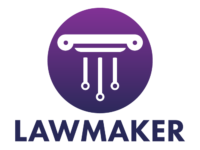In England, provision of and funding for adult social care has been subject to numerous reports, commissions and Government papers which have failed to produce agreement on how to tackle the urgent need for reform.
Involve was commissioned by two UK Parliamentary Committees to run a citizens’ assembly – a representative sample of the English public – to inform their joint inquiry on the issue.
It was the first time a UK Parliament has ever run a citizens' assembly to gather public views.
Innovation Tag: Open Government
It is currently difficult for the public to follow how EU laws are made. This is because the Council - where Member States are represented - remains relatively inaccessible. Documents are difficult to get hold of and Member States’ positions on a given law are not public. The EO opened an own-initiative inquiry into Council legislative transparency and has called for a series of transparency steps to be taken.
Originally conceived as a planning tool, HeritageMaps.ie is a user-driven, web-based mapviewer focusing on the built, cultural and natural heritage around Ireland and offshore. Its potential for use by the general public was quickly realised and users can now access 700+ up-to-date heritage datasets in map-form, originally provided across many Govt. platforms. HeritageMaps.ie a free ‘one-stop-shop’ for heritage data and acts as a discovery portal, providing direct links to promote research.
The MSIP Observatory is an interactive tool presenting spatial data of the City of Krakow useful for residents, investors, tourists and anyone interested in our city. The map consists of many layers presenting different kinds of information i.e on architecture and urban planning, nature protection and ecology, administration and security, tourism and history of the city. It's interactive and user-friendly and it implements the idea of open government and open data.
Latvia’s E-index is the first national-level initiative helping central government institutions and municipalities to evaluate and recognize their level of digital transformation, foreseen solutions and learn from other institutions. This enables and motivates the development of the e-environment. Within the spirit of positive competition, the common goal is raising awareness of digital transformation, learning about policy and tools, and increasing quality and accessibility of services to…
In order to rebuild the relationship between the administration and its stakeholders, the Chamber of Commerce of the Italian city of Cosenza has initiated project #OpenCameraCosenza. To achieve this objective, #OpenCameraConsenza rearranged the organizational and communication structures and together with the legal representative, the communications team used different tools to reach the administration's stakeholders: Facebook, Twitter, Instagram, Aurasma app, Qr-codes and the website.
The Northern Ireland (NI) Public Sector Innovation Lab has organised a hackathon, “Hack the Pain,” to address these needs of an underserved group: people with persistent pain. These individuals need for better information services for self-management, and the projects that emerged from the hackathon include a virtual reality app for mindfulness, a pain tracking app and a website of information on pain management techniques.
LawMaker is a lobby for the lobbyless – a free advocacy tool for those of us who don’t have a professional working for them to influence our governments. LawMaker allows Americans to (1) crowdsource ideas for new laws, (2) build voter coalitions, and (3) engage politicians to advocate for change. Our mission is to democratize democracies by empowering the creation of new laws that originate from real people at the grassroots, instead of from lobbyists and wealthy special interests.
En 2015, le Parlement de Wallonie a engagé une réforme de son Règlement ayant notamment pour objectif d’associer davantage les citoyens wallons au travail législatif des députés.
Dans ce cadre, plusieurs dispositifs ont été mis en place dont la plateforme "Un décret par tous, un décret pour tous" qui vise à encourager les citoyens à intervenir directement dans la rédaction d’un décret sur base d’une problématique soulevée par un député.
Open policy-making is an opportunity for government and stakeholders to move from linear, polarized, single-issue, interest-based considerations to interactions that are networked, collaborative, opportunity-based and where complexity is viewed as an asset. Adapted for the Government of Canada context, Pol.is is a cost-effective and highly scalable, digital engagement platform that can be used as part of broader strategies to put people and robust evidence at the heart of government decisions.


